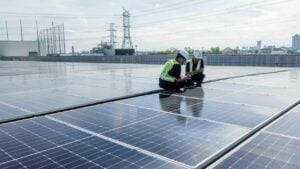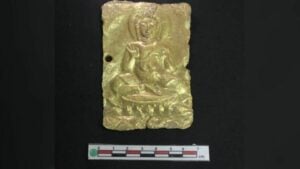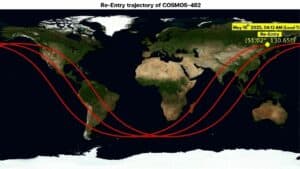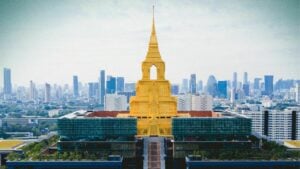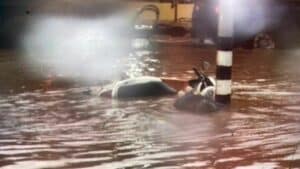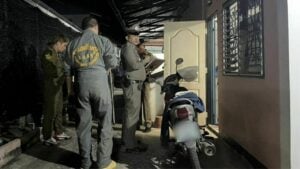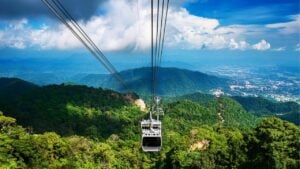A Land Bridge or the Kra Canal for Thailand?
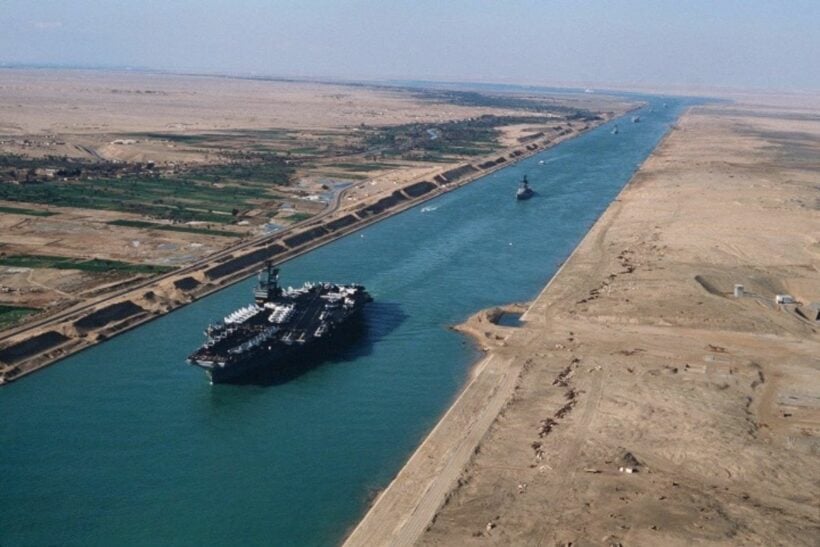
OPINION by guest writer Tony P Restall
Why the land bridge idea will never work
Much has been written about the long-proposed Thai or Kra Canal and the on and off decision to proceed, or not. Over the recent years several high-level committees have examined the economic benefits to establish a water connection by means of a canal linking the East Coast of Thailand to the West Coast. For hundreds of years there has been proposals to cut a Canal across the Kra Peninsular, the skinniest part of the Malay Peninsula, to facilitate a short cut and avoid the transit of sea going vessels past Singapore and the Malacca Straits.
Unlike the significant financial savings by ocean going vessels using the Panama and Suez Canal and the significant time/distance to sail around the cape route, the Kra Canal will not provide any significant financial benefits. So why should Thailand and its Government even consider such a project and the very significant construction costs (estimated at US$50 billion).
In these times of massive economic pressure on places like Thailand, and its loss of ‘tourism revenue’, hundreds of thousands of people are finding themselves unemployed. Who in their right mind would commit to such a massive infrastructure investment when the country is in economic stress?
How would Thailand ever hope to repay or cover the infrastructure cost of such a major infrastructure investment?
China had mooted an interest to fund and construct the Kra Canal, but what we have all witnessed globally with so called ‘Chinese Help’. Would Thailand want a foreign power controlling and running such a strategic facility? Of course not, so naturally to reject the very concept of the Kra Canal appears to be done & dusted. Much to the relief of Singapore and Malaysia, who would have been significantly disadvantaged should such a canal having ever been given the go ahead.
Singapore is the largest vessel anchorage in the world with up to 1,000 vessels at anchor at any one time. The Value-Added benefit to Singapore such as providing fuel and all the other maritime support services has put Singapore well and truly on the world maritime map. Singapore has a population of some 5 million people and the per capita per person is significantly higher than that of Thailand. The vulnerability of Singapore, and its main achilles heel, is the very narrow and very busy Malacca Straits which is already highly utilised and risks of a maritime incident rise daily the busier it becomes.
So why would Thailand benefit from the development of the Kra Thai Canal?
Passing trade (through such a canal) would provide access to global trade, meaning that jobs could be created and factories and manufacturing could be established.
‘Rubbish’ I hear many of you say – something I have heard many times in my Free Zone Life.
When Dubai established the first Free Trade Zone I heard the same accusations and even more when the Ruler of Dubai constructed a second Port in Dubai when the entire UAE population as just over 1 million. The writer was there and led the commercial development of Jebel Ali Port and a year later Jebel Ali Free Zone.
“It’s a white elephant and never going to work” most of the critics said.
Gladly I am able to report they were wrong. VERY wrong, as last year Jebel Ali Port & Free Zone contributed US$140 billion in free trade towards the US$500 billion economy of Dubai. The 67 berth Deep Water Port has been expanded to cover 92 berths and Dubai now has 23 Free Zones. Yet Dubai and the UAE Free Zones lack certain elements… it is off the Trade Maritime Route (requires a deviation), has no available local labour, and is forced to import 5-6 million foreign workers.
What could Thailand do by creating jobs for 5-6 million Thais?
The $50 billion investment cost in infrastructure of the Kra Thai Canal would be recovered very quickly (less than 10 years I estimate) and at the same time provide Thailand with an increased GDP and massive employment in sectors such as rice farming and rubber plantations.
How to prove this?
The writer (after the tsunami that hit Thailand’s western coastlines) proposed a pilot scheme Free Zone in Phuket – at Ao Makham in 2006 . Investors from Qatar and the UAE came to Phuket and confirmed their willingness to invest.
(I bet people now wished they had listened to that offer as again Phuket and Thailand is suffering due to lack of Tourism Revenue.)
Phuket and other locations could have had a very significant and secondary revenue flow over and above the tourist dollar. During discussions and several Kra Canal Conferences the writer challenged the Thai Government to permit a pilot scheme Free Zone in Phuket to prove the claim that such a facility would create jobs and a massive revenue stream. There are those in power that didn’t understand and weren’t willing to listen and think outside the box. As a result, Thailand now finds itself in another deep economic hole.
Meanwhile, the ‘land bridge‘ alternative… that surely is a joke and beyond any logical thinking. When Dr Mahathir Mohammed was returned to power as the Malaysian Prime Minister, he immediately cancelled the proposed land bridge concept for Malaysia. Yet Thailand is seriously considering that option?
To save what? 1-2 days sailing time around Singapore and through the Malacca Straits?
Not only is it a completely ill-conceived idea, the numbers will never stack up and the vessel operators would never even consider it viable. Extra handling costs (1 day offloading, 1 day in transit overland and 1 day reloading). There would be no valid gain. Every time a container is handled it incurs extra cost. The Land Bridge idea simply hasn’t been thought through. Malaysia’s Dr Mahathir Mohammed saw through the problems very quickly, so why is Thailand even considering it?
Written by Port & Free Zone Global Expert, Tony P. Restall (aka Mr Free Zone)
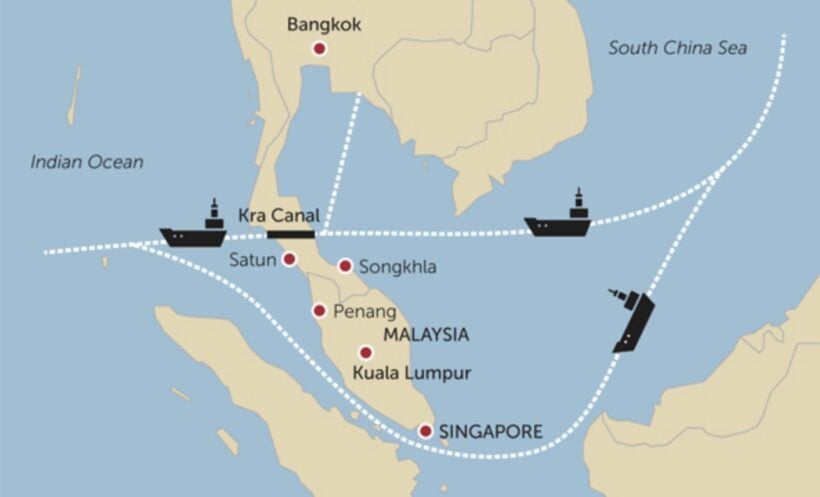
Latest Thailand News
Follow The Thaiger on Google News:


